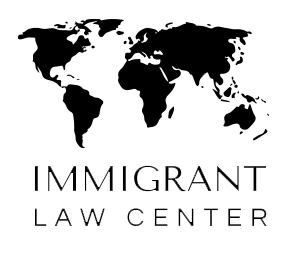J-1 Visas: All You Need To Know

Anyone outside the U.S. who wishes to take part in study and work-related exchange programs in the U.S. may apply for the J-1 visa, also known as the Exchange Visitor Visa. In this article, we will provide detailed information about the J-1 visa application process and the steps you must take to be qualified.
What is a J-1 Visa?
In other words, the J-1 is a nonimmigrant visitor visa that allows foreign nationals to participate in academic, professional, and cultural experiences approved by the Department of State Bureau of Educational and Cultural Affairs.
Who can participate in the exchange visitor program?
The exchange visitor program consists of 15 categories and each category has specific requirements for participation. You may be eligible to apply if you engage in one of these following categories:
- Au Pair
- Camp Counselor
- College and University Student
- Government Visitor
- Intern
- International Visitor
- Physician
- Professor
- Research Scholar
- Secondary School Student
- Short-Term Scholar
- Specialist
- Summer Work Travel
- Teacher
- Trainee
In addition to that, all participants must demonstrate proficiency in the English language and have medical insurance approved by the government requirements. There are also some other application requirements that vary depending on the category, and here you can find a detailed list for each program’s requirements.
How long can J-1 Visa holders stay in the U.S.?
A J-1 visa is valid for the duration of the exchange program and in some particular cases, it may be extended. For example, if your student visa lies under the College and University Student Program category, you can remain in the United States for the duration of your course or degree program. Here you can find a list that includes the duration of a variety of different kinds of programs.
Can I Work in the United States under a J-1 Visa?
There are certain restrictions (like working part-time on campus for a maximum of 20 hours per week) but generally, J-1 students are permitted to work with authorization. During academic breaks, students are allowed to work full time.
How to apply for a J-1 Visa?
The first step to obtain a J-1 Visa is to apply for and be accepted into an exchange visitor program through a designated sponsoring organization in the United States. To learn about program requirements, regulations, and more, visit the Department of State J-1 Visa Exchange Visitor Program website.
What are the requirements of the J-1 Visa Program?
- English language proficiency – To be eligible to apply as a J-1 participant, you must have sufficient proficiency in the English language. This requirement allows exchange visitors to be able to live successfully in the U.S. during the period of the program. There are several tests non-native English speakers can take such as IELTS, TOEFL, and TOIC. It is important to consult your sponsor about what kind of test is most suitable in your case.
- Valid passport – You and any dependents you have must guarantee that your passports are valid for U.S. travel for at least 6 months ahead of your program conclusion date.
- Valid insurance – Both you and any dependents must have medical insurance containing the minimum standards outlined by your host university. Keep in mind that your sponsor must also provide you with an emergency 24 hour contact.
- Funding source – It is important to mention that at least 50% of your program funding must be provided by an accredited sponsor that is not a friend or a member of your family.
- Follow work restrictions – Students are not allowed to work off campus if they don’t have authorization from their sponsor and university. Make sure to exclusively work on campus part-time for 20 hours a week max, except during academic breaks, when you can work full time.
- Meet home residency requirements – Make sure your address is always updated. If you change your residence, you are required to update both your sponsor and your university of the address change within 10 days. After the ending of your program, you must return to your home country and live there for at least 2 years.
What do I need to know before applying for a J-1 visa?
First, you need to find a J-1 program sponsor to be able to start your process. There are several different types of sponsors according to your needs, and if you wish to learn more about it, click here. After that, you must pay two fees before applying for the visa, which are:
- Program fees: These fees will differ according to the type of program you are a part of, and the cost may vary. You should always check beforehand with your sponsor about who is going to be responsible for paying the fees.
- SEVIS fee: The SEVIS fee is responsible for funding the system that maintains information on the Student and Exchange Visitors. This fee can range from $35 to $220 for J-1 applicants.
What are the steps of a J-1 Visa application?
Once you have been accepted by a sponsor and paid the fees, you will have to follow the following steps:
- Obtain a DS-2019 form from your designated sponsor.
- Complete the online DS-160 form.
- Pay a visa issuance fee of $160.
- Organize all the required documents.
- Attend the interview at the U.S. Embassy or Consulate in your home country.
Which type of documents do I need for the J1-visa?
You will need to bring several documents to the interview, such as:
- Original passport.
- DS-160 confirmation page.
- Application fee payment receipt.
- A photo.
- A DS-2019 form.
- A DS-7002 form (only if participating in a trainee or intern program).
- Documents supporting your travel purpose.
COVID-19 Update
As we are living in a pandemic, the processing time to get a J-1 visa might be different from usual. To get updates, you should always consult the instructions provided on the embassy or consulate website from your home country.
If you are interested in learning more, fill in the form to contact us or send us an email: [email protected]
The information provided on this post does not, and is not intended to, constitute legal advice. All information and content available on this website is for general informational purposes only. Information on this website may not constitute the most up-to-date legal information. Only your individual attorney can provide assurances that the information contained herein – and your interpretation of it – is applicable or appropriate to your particular situation. Use of, and access to, this website or any of the links or resources contained within the website or post does not create an attorney-client relationship between the reader, user, browser, website authors, and contributors.


